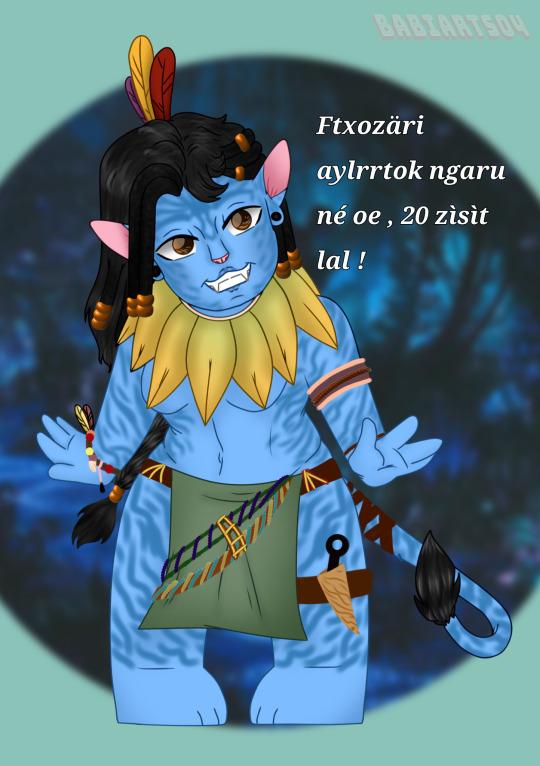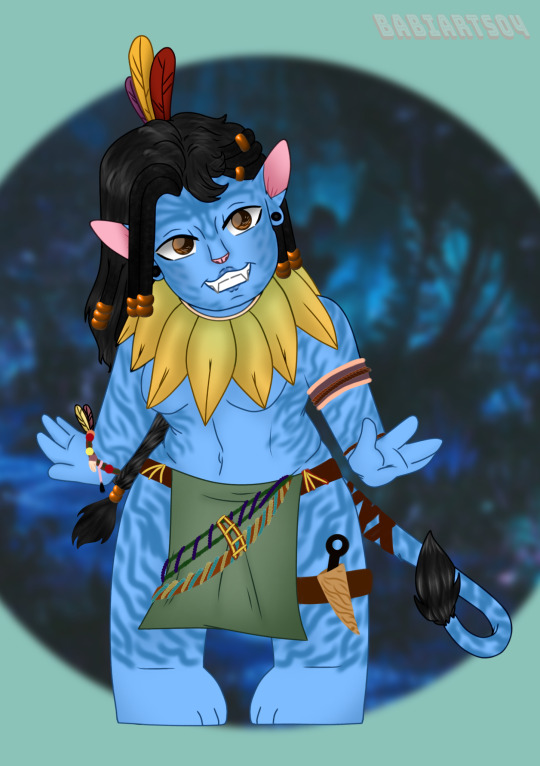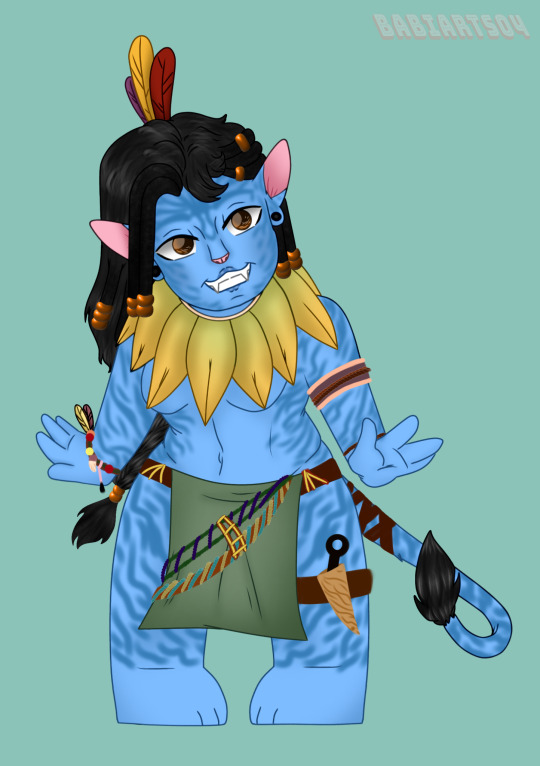#i understand how the counting works in theory but converting a random decimal value to octal on the fly...whoof 😅
Explore tagged Tumblr posts
Text
Happy birthday! 😸 a few notes on the Na'vi:
Ftxozäri aylrrtok ngaru is the standard way to wish someone well on their birthday, but it doesn't literally mean "happy birthday".
Aylrrtok ngaru by itself means "smiles to you!" Ftxozä by itself means celebration, and adding the -ri ending marks it as the "topic" being discussed. So, ftxozäri aylrrtok ngaru actually means "regarding the celebration, smiles to you!", or a bit more smoothly, "smiles to you for the celebration!"
With that in mind, adding "ne oe" to the end to (presumably) make it "happy birthday to me"...doesn't really work 😅 instead it reads as "regarding the celebration smiles to you towards me".
To say happy birthday to yourself, you would just replace the ngaru with oeru! Ftxozäri aylrrtok oeru! -- "smiles to me for the celebration!"
To state how old you are, the standard phrase is oeri solalew zìsìt a[x], literally "regarding me, [x] years have passed". Na'vi numbers are also a bit tricky because their counting system is grouped by eights rather than by tens. So while English or Portuguese think of the value 20 as two tens, Na'vi would think of it as two eights plus 4. This makes it very confusing to write in numerals after 8 in Na'vi because your brain will try to assume the decimal (grouped by tens) value rather than the octal (grouped by eights) value.
Basically, with decimal on the left and octal on the right:
1-7 = 1-7 8 = 10 9 = 11 10 = 12 11 = 13 12 = 14 13 = 15 14 = 16 15 = 17 16 = 20 17 = 21
...etc. Obviously the higher you go the further apart the values will drift compared to how they're written. For this reason most irl Na'vi speakers, since we are humans who are accustomed to reading numerals in base 10, will fully spell out the number rather than using numerals, especially for numbers higher than 8.
Like I said before, 20 in groups of ten becomes 24 in groups of eight, and the way to say that in Na'vi is mevosìng (literally "two-eights-four")!
So, "I am 20 years old" in Na'vi becomes oeri solalew zìsìt amevosìng 🙂
I know the number thing is very confusing, I'm pretty bad at doing it on the fly myself (math hard 😅), but if you ever need to check what a number becomes in Na'vi, you can always use LearnNa'vi's number converter! 😸



FELIZ ANIVERSÁRIO PRA MIIIM !!! Gente como eu tô ficando véia , 20 aninhos agora , oficialmente uma adulta 🥲 só quero agradecer por tudo e pra todas as pessoas que eu amo , e o que esse perfil me deu de visibilidade, sério gente muito obrigada amo vocês 💕🛐
Curtem ❤️
Compartilhem 🤳
Comentem 🗯️
Seguir 🛐
Isso ajuda muito no perfil
#lì'fya leNa'vi#i do need to practice numbers more 😅 part of the problem is that big numbers don't actually really come up in casual conversation very much#and it's harder to memorize stuff that you aren't frequently actually using#I know 1-8 and I know my own age and with a little bit of thought I can get 9-16#after that i'm pretty much always consulting the converter just in case 😅#i understand how the counting works in theory but converting a random decimal value to octal on the fly...whoof 😅#oh! and by the way just fyi the letter é doesn't exist in Na'vi#....well except in the word tuté but that's a special exception to distinguish tute (person) from tuté (woman) in writing#when spoken the difference is the stress (TUte vs. tuTE)#but again this word is the exception not the rule#you won't see é in any other na'vi word#on that note tuté is also the ONLY word where an accent mark is used to indicate stress#(and again it's only so you can tell it apart from tute in writing)#ä ì ù are distinct sounds from a i u#ä = sat; a = sought#ì = sit; i = seat#ù = soot; u = suit#whereas the é in tuté is still pronounced like a normal e (= set)
21 notes
·
View notes